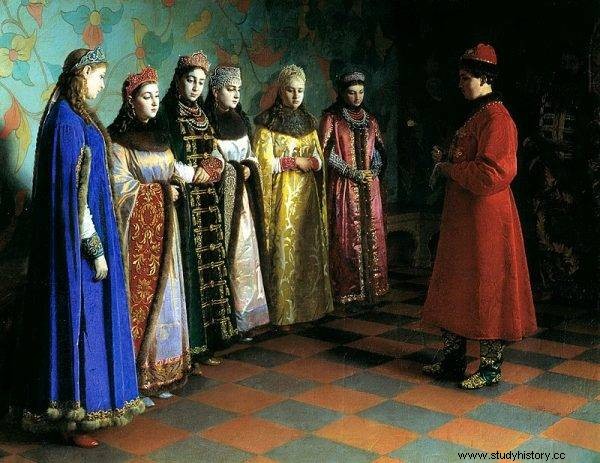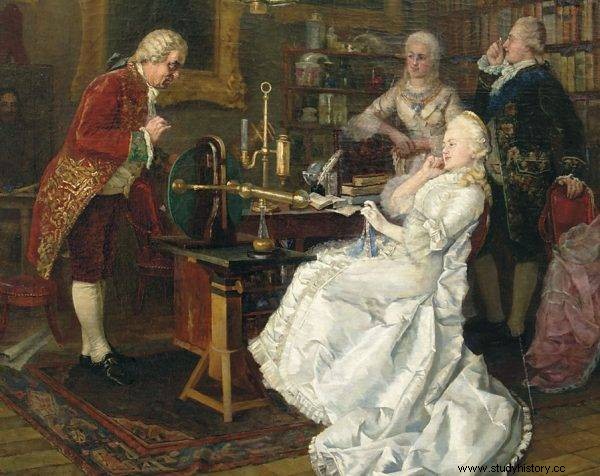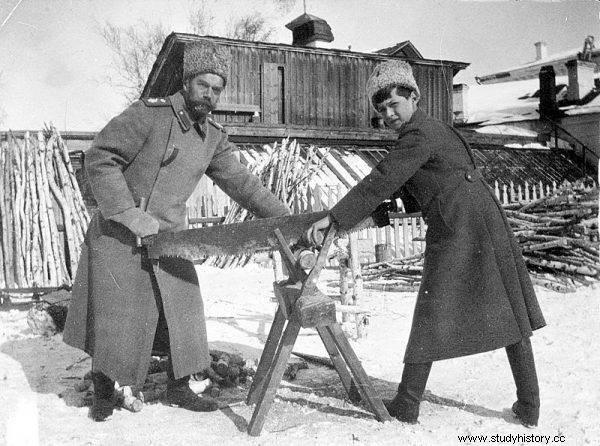The upbringing of the heir to the Russian throne was a matter of state importance. Tsarist children were provided with the best teachers and the education was surprisingly progressive!
In the history of tsarist Russia, the first monarch who began to pay due attention to the preparation of the heir to the throne and the education of all children was Alexei Mikhailovich. The crown was held by his three sons:Fyodor III (ruled in the years 1676-1682), Ivan V (in the years 1682-1696; he co-ruled with Peter) and Peter I (on the throne from 1682 to 1725). It was during the reign of Tsar Alexius that the gradual Europeanization of Russia began continued by Fyodor and Peter the Great. The atmosphere in the children's rooms played a huge role in the modernization of the country.
West direction
Although the Europeanization is associated with Peter I, his father already began to adopt many Western customs. Theater appeared at the tsarist court, although in Moscow Ruthenia theater was perceived as a devilish invention. Torn by doubts, Alexios even consulted his confessor about the matter, who allowed entertainment, explaining that even Byzantine emperors watched the performances . The monarch also organized musical evenings with German virtuosos. Ballet performances were also held in the tsarist palace. The decision to exhibit them was preceded by Alexios' consultations with trusted courtiers, who reassured him that this type of entertainment was common in Europe.

During the reign of Tsar Alexei, the gradual Europeanization of Russia began
The tsar, though having a sumptuous beard himself, did not object when some of his courtiers began to parade with clean-shaven faces . Contacts with foreign countries revived. The first regular connection with Europe appeared, and the first trade caravan set off for Beijing. After signing the Andrusian peace, the Russians sent the text of the treaty to other European rulers, thus marking their country's presence in international politics. When the monarch's son Peter (the future reformer) was born in 1672, the tsarist envoys traveled to the West to inform the local rulers of the joyful event at the Moscow court. A year later, the first Russian ambassador arrived in Warsaw.
Equality?
Alexius took care of the good education of his son Fyodor, heir to the throne, who in turn took care of the development of Peter's younger brother, the future Peter the Great, initiating his education. The greatest influence on the personality of Fyodor III was his mentor - a Belarusian monk Simeon Połocki, a pupil of the Kiev-Mohyla College and a student of the Jesuit college in Vilnius. He was an example of "an intellectual coming from western Ruthenian lands who, along with the language of his Jesuit lecturers, also assimilated their worldview and the culture of the Latin West.
Choosing Polotsky to teach tsarist children was a revolutionary move, because "several dozen years ago - as the Russian historian Igor Andreyev writes - a monk who listened to lectures at the Jesuits, not only would not be allowed into tsarist rooms, but sent to a distant monastery like a reformatory ". In 1664 Połocki became a teacher of Alexei's children:Fyodor and Sofia. For the first time in history, a royal daughter began to systematically study on an equal footing with her brothers. It was a profound change at the Moscow patriarchal court, because girls in the Russian state were not taught to read and write, because it was believed that the fair sex "naturally had a more simple mind".

Alexius took care of the good education of his son Fyodor, heir to the throne, who in turn took care of the development of his younger brother Peter
Simeon Połocki turned out to be an ideal teacher. He had almost encyclopedic knowledge, which he passed on in an engaging and clear way. After his accession to the throne, only 15-year-old Fyodor continued and even strengthened his father's pro-Western policy. Summarizing the rule of Alexei and Fyodor, the eminent historian Sergei Soloviev stated that their reign prepared Russia for the process of Europeanization :“The [Russian] nation has already prepared to go and waited for their guide [i.e. Peter I - ed. aut.] ”.
Progressive grandmother Katarzyna
Catherine II was an above-average loving and caring grandmother to her eldest grandsons:heir to the throne of Alexander and Constantine, who was to become the ruler of the reborn Byzantine Empire. She took the boys from their parents, believing that only she could prepare them for the future role. In the first years of life, children paid a lot of attention to their physical development, health and hygiene. The boys were not restricted in their movements, they were allowed to run barefoot on the grass. The temperature in their rooms did not exceed 19 degrees, and the rooms were aired regularly. Even in severe frosts, the brothers were allowed to walk.
Catherine II also cared for the education of her grandchildren. She composed "Grandma ABC" - a collection of stories about Russian history and maxims "strung like pearls on a rope" - as she put it herself. When Aleksander and Konstanty turned 6 and 5, respectively, they were placed under the care of General Mikołaj Sałtykow, who received from his employer "instructions" to raise boys . An interesting fact is that there was no room for music in the curriculum set by the empress. Katarzyna did not appreciate this play:“No harpsichord. Mr. Aleksander and Mr. Konstanty will not learn music; they can clank each other if they choose, but without learning. ”

Katarzyna II was an above-average loving and caring grandmother for her eldest grandchildren
Grandma has personally chosen a religion teacher for her grandchildren. It was prelate Andrei Samborski who, compared to other Russian clergymen, stood out due to his cosmopolitan education, open-mindedness and contempt for tradition. The clergyman did not wear a beard and mustache, instead of a cassock he wore a coat. Catherine, who was afraid of the domination of religion in the Russian Empire, hoped that this enlightened priest would instill in his grandchildren respect for God's commandments and an aversion to bigotry. For the heir to the throne, the empress hired a progressive teacher - Frédéric-César de La Harpe, a philosopher from Switzerland. The pedagogue spoke to his ward about the inviolability of human dignity and respect for human beings regardless of their social condition.
That awful hemophilia
The saddest fate befell the only son of Nicholas II and Alexandra - the heir to the throne of Alexius, born in 1904. The boy suffered from haemophilia, a hereditary blood clotting failure . The disease manifested itself, inter alia, in inability to stop bleeding even after a minor cut, frequent and large bruises, nose bleeds that are difficult to stop. It was enough to sneeze, cough and runny nose. Alexius could bleed even from a small wound. The greatest threat to the boy was the spontaneous bleeding into the joints and muscles of the arms and legs leading to the degeneration of the limbs and uncontrollable internal bleeding.

Nicholas and Alexander pampered Alexei. The heir to the throne started school very late, at the age of 8.
Parents trembled for the life of their only son. They hired two tall sailors who were with the boy the whole time and looked after him. Alex was not allowed to ride a bike or run. Nevertheless, he suffered dangerous injuries and was on the verge of life and death several times. That's why Nicholas and Alexander pampered Alexei. The heir to the throne started school very late, at the age of 8. Teaching was often interrupted due to relapses, and the parents did not expect their son very much.
The boy, of course, knew that he was the future emperor, and his four older sisters were less important than him. He was taught, inter alia, love of the army. Already a few years old, Alexei and his father were visiting various units of the Russian army. During World War I, the heir to the throne stayed in the Stawka of the Commander-in-Chief in Mogilev, where he got acquainted with the life of the military. Ultimately, he was not able to prove himself as a tsar. In March 1917, Nicholas II was forced to abdicate, and soon the entire tsarist family was shot.
Sources:
- И.Л. Андреев, Алексей Михайлович, Москва 2006.
- B. Бокова, Детство в царском доме. Как растили наследников русского престола , Москва 2011.
- Troyat, Alexander I. Conqueror of Napoleon, Warsaw 2007.
- Wiernicka, Polish women who ruled the Kremlin, Warsaw 2018.
